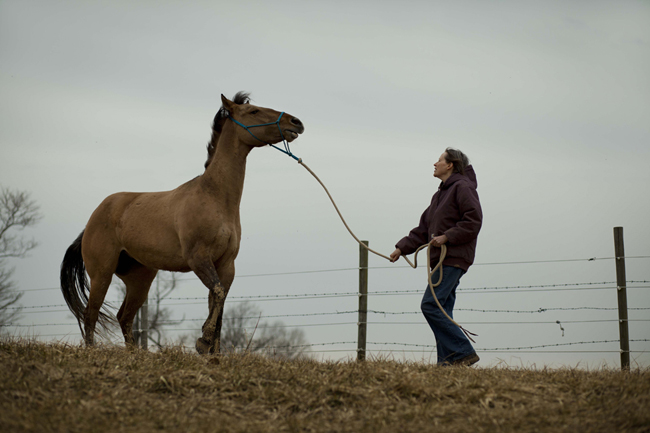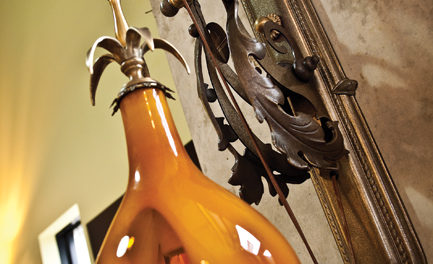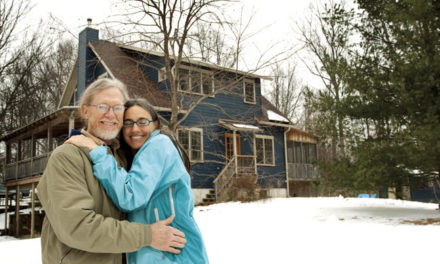BY JANET MANDELSTAM
In his glory days, Guy was a show horse. But those days were long gone when animal control officials brought him to Horse-Angels Inc., a nonprofit equine rescue and rehabilitation center in Owen County. “That horse was starving to death,” says veterinarian Sue Whitman, owner and “chief angel.”
Like Guy, all the abused, stray, and unwanted horses that arrive at Horse-Angels are brought back to health, professionally trained, and, in most cases, adopted by new, caring owners.
Whitman, a graduate of Purdue University College of Veterninary Medicine, who claims she was “born obsessed with horses,” says it takes a minimum of a year to get a horse ready for adoption. “They’re always in horrible condition, and we’re the only place in the area that will take them in.”
Horse-Angels has accommodations for 48 horses, “but last summer we had 69,” says Whitman. Current economic conditions have led to “an increased number of unwanted horses; a lot of people just can’t afford the hay.” Law enforcement and other government agencies remove abused horses, many of them little more than skin and bones, from their owners, and they round up strays along the highways.
Once rehabilitated, horses have been
adopted by new owners “all over the Midwest,” says Whitman, although the majority, like Guy, find new homes in Indiana.
Guy now resides outside of Indianapolis. His new owner, Emilie Britt, says she “grew up around horses” and always wanted one of her own. Britt adopted Guy in November
after many visits to Horse-Angels, first watching others ride him and then saddling up herself. “He’s doing great,” she says, “He’s very smart and very social.”
Like Britt, most new owners spend considerable time at Horse-Angels. “We get to know the people very well before they adopt,” says Whitman. “I don’t want the adoptions to fail. These horses have been through enough.”
But not all horses are adoptable. Because Horse-Angels is a “no-kill” organization, about 20 unadoptable horses, including four who are blind, live permanently on the 120-acre property. The oldest horse, a 43-year-old mare, died last year. A horse will be euthanized “only if it is in pain, unable to get up, and won’t get better,” Whitman says.
Horse-Angels has been rescuing horses since 2001. It has only one full-time employee in addition to Whitman and a part-time stall cleaner. About a dozen regular volunteers help out on weekends. To learn more about the adoption process or how to volunteer at Horse-Angels, visit
horse-angels.org.











